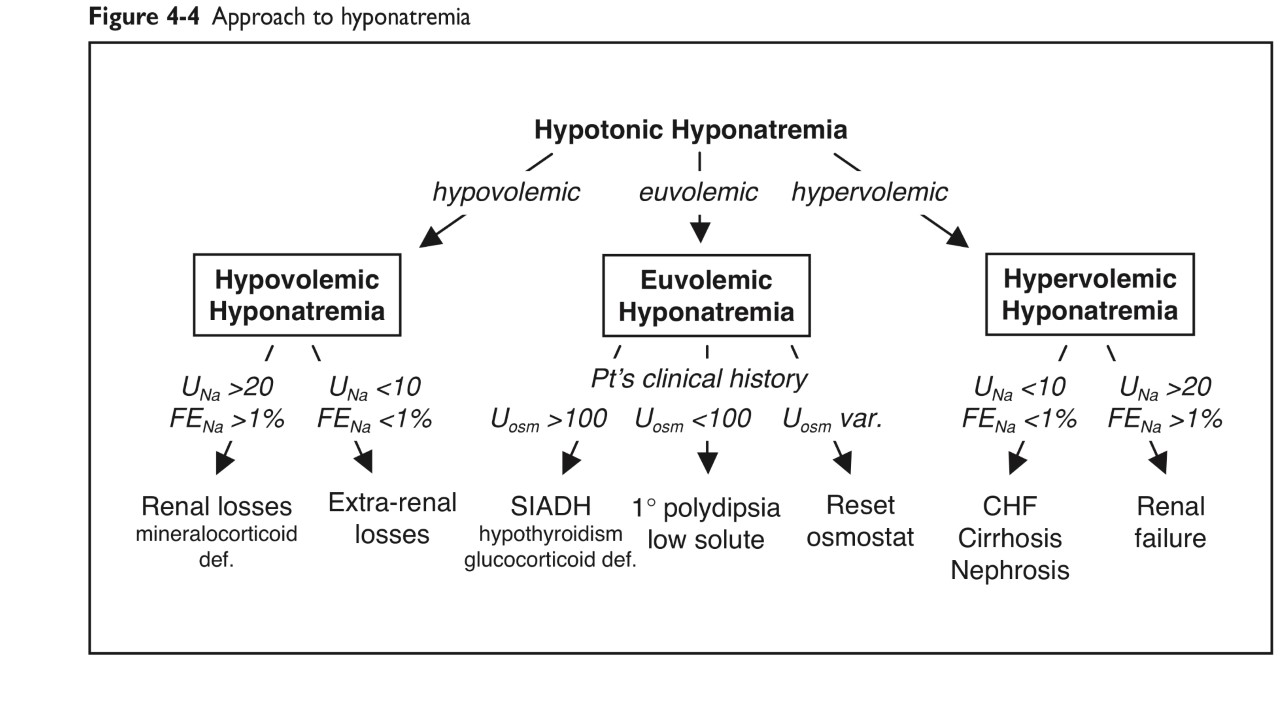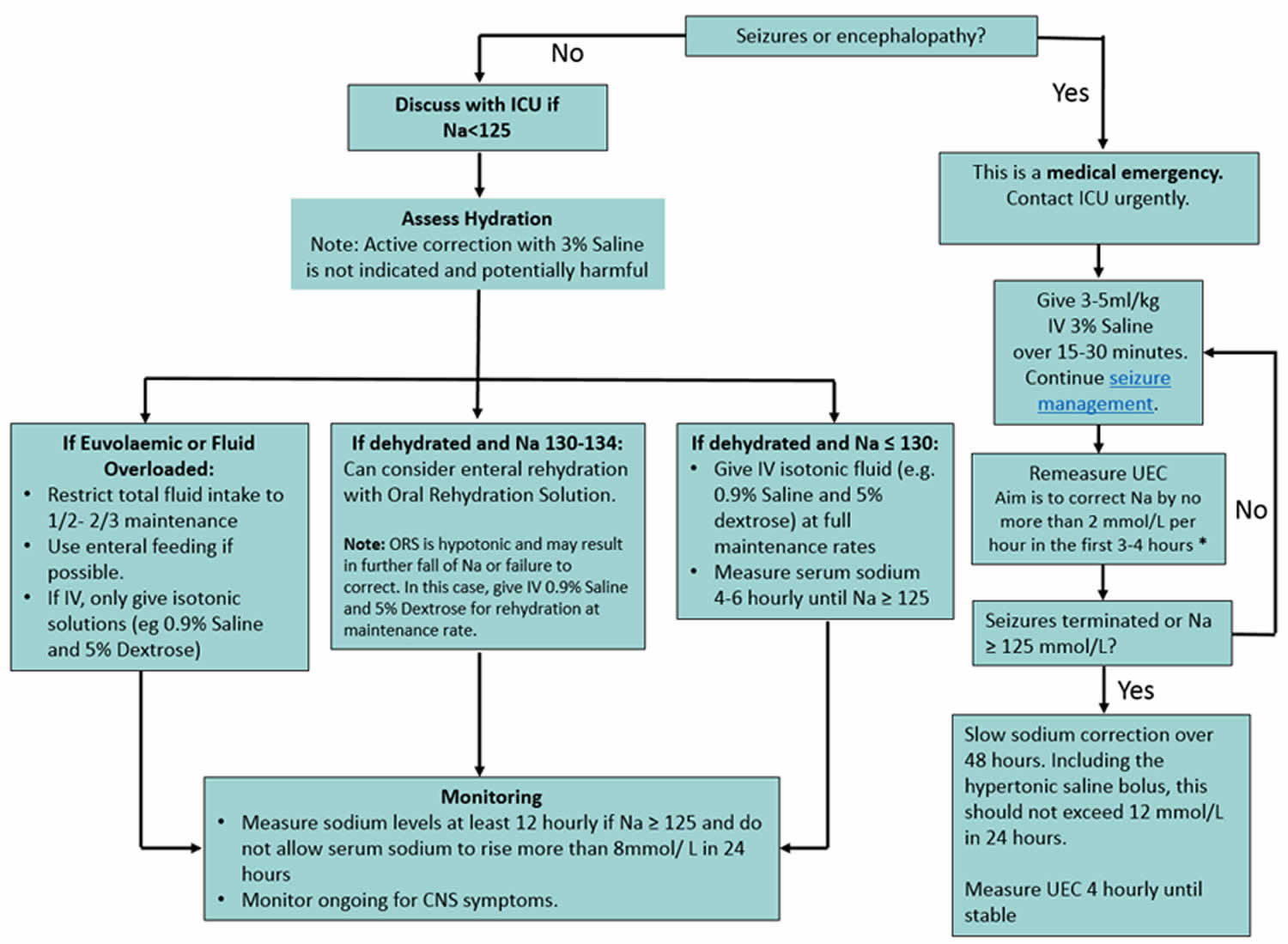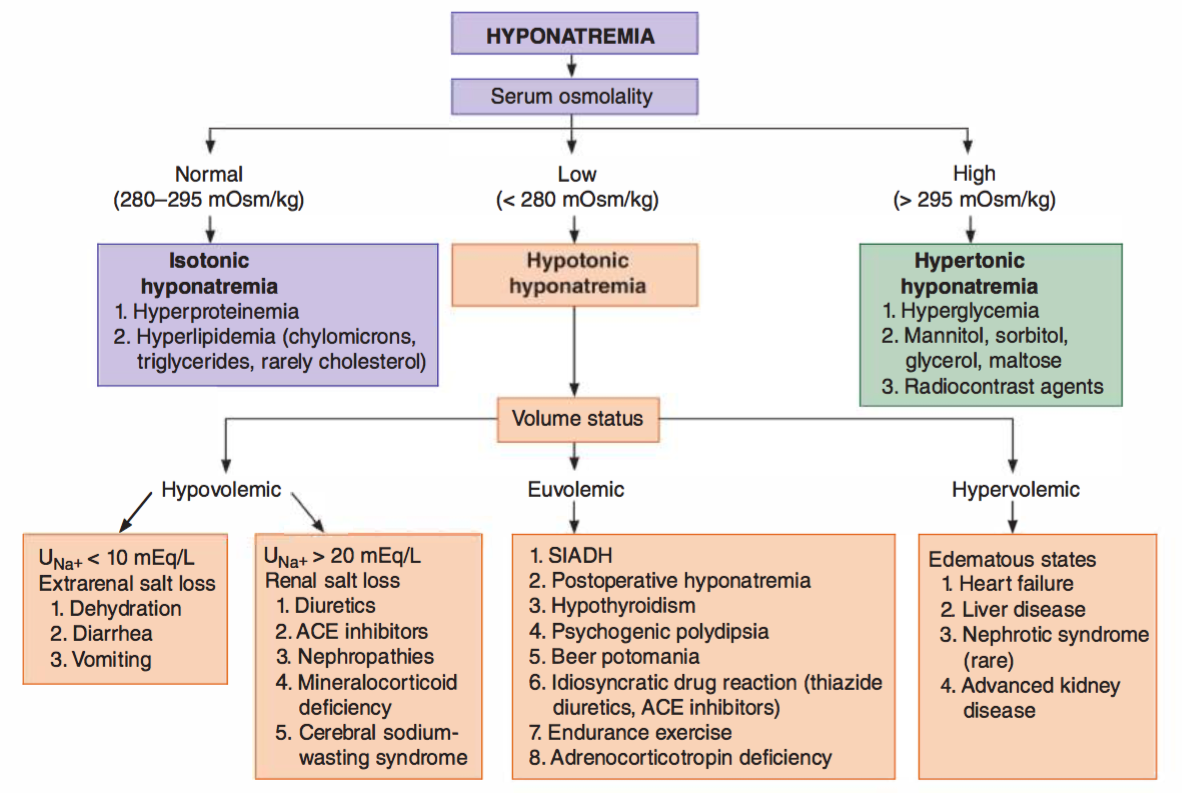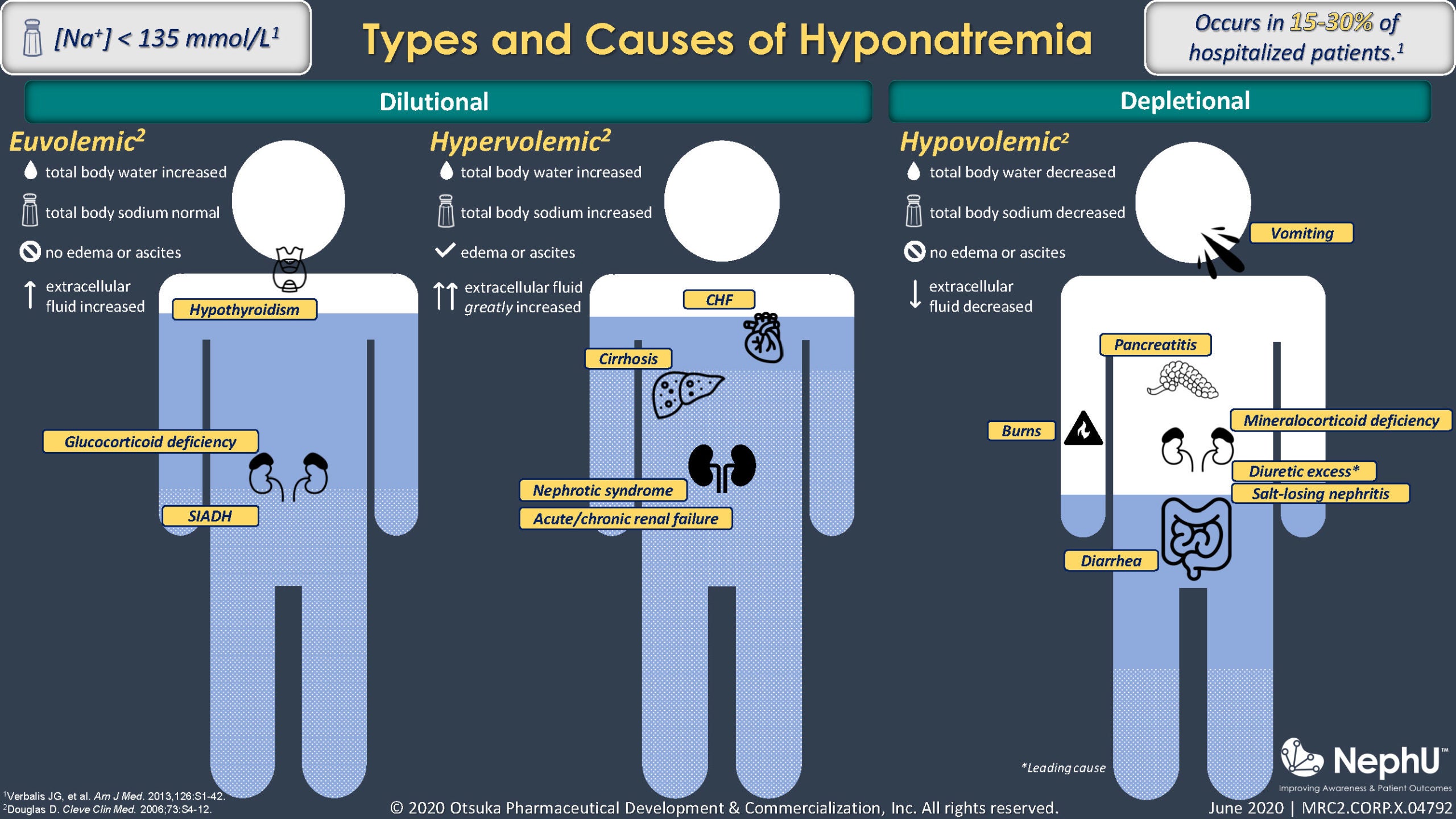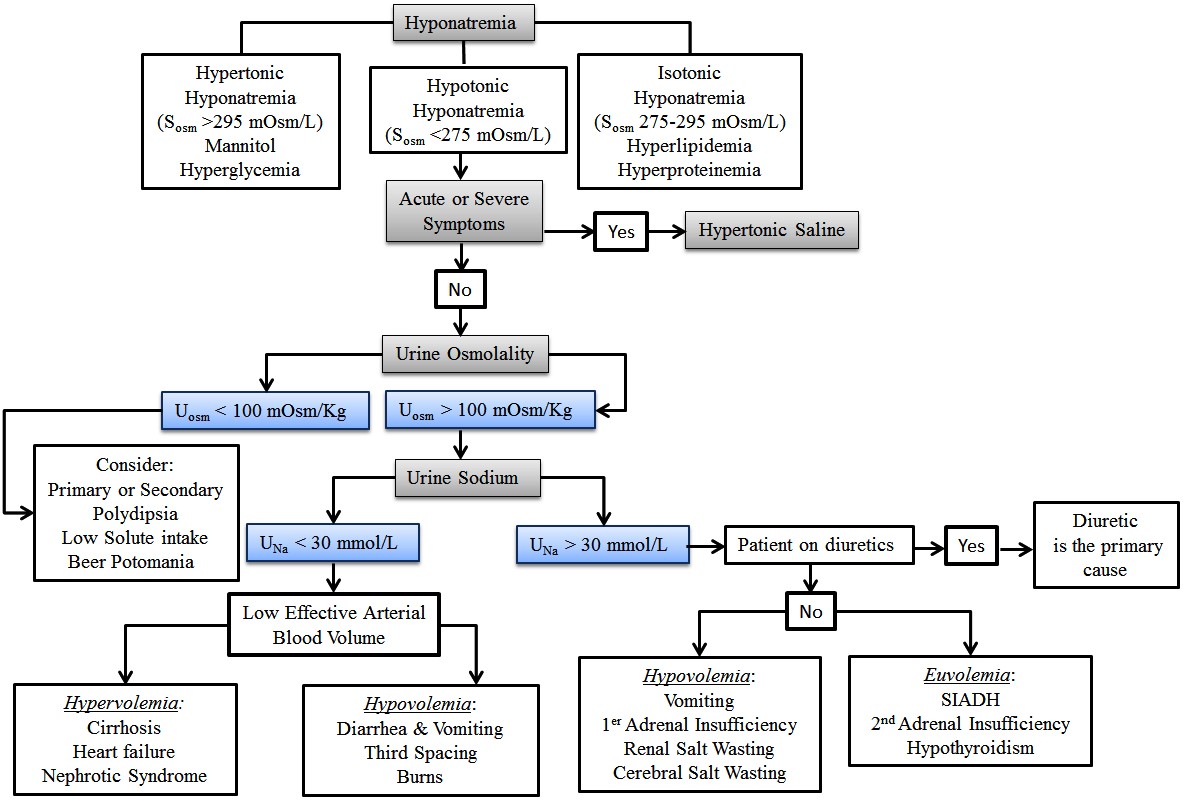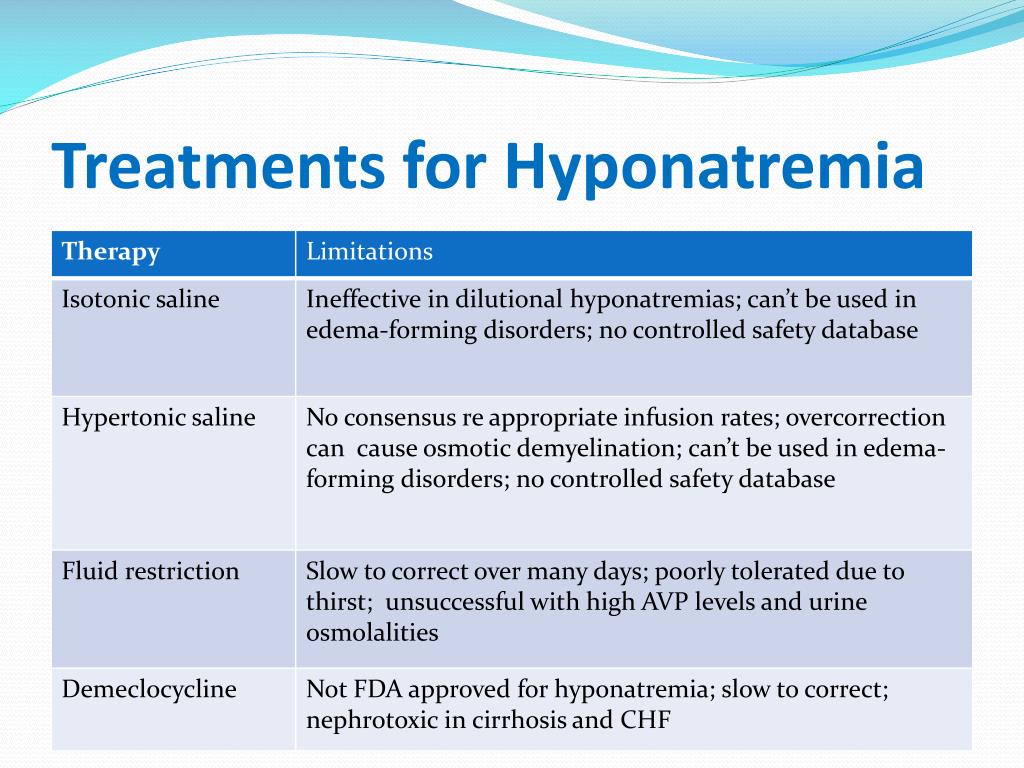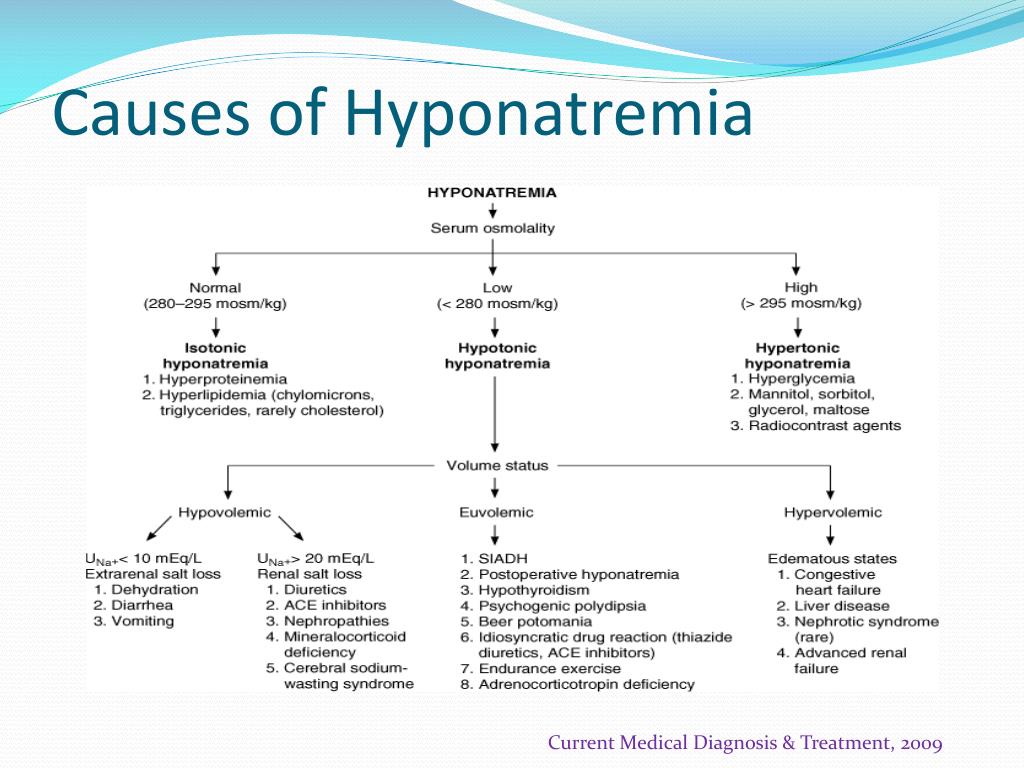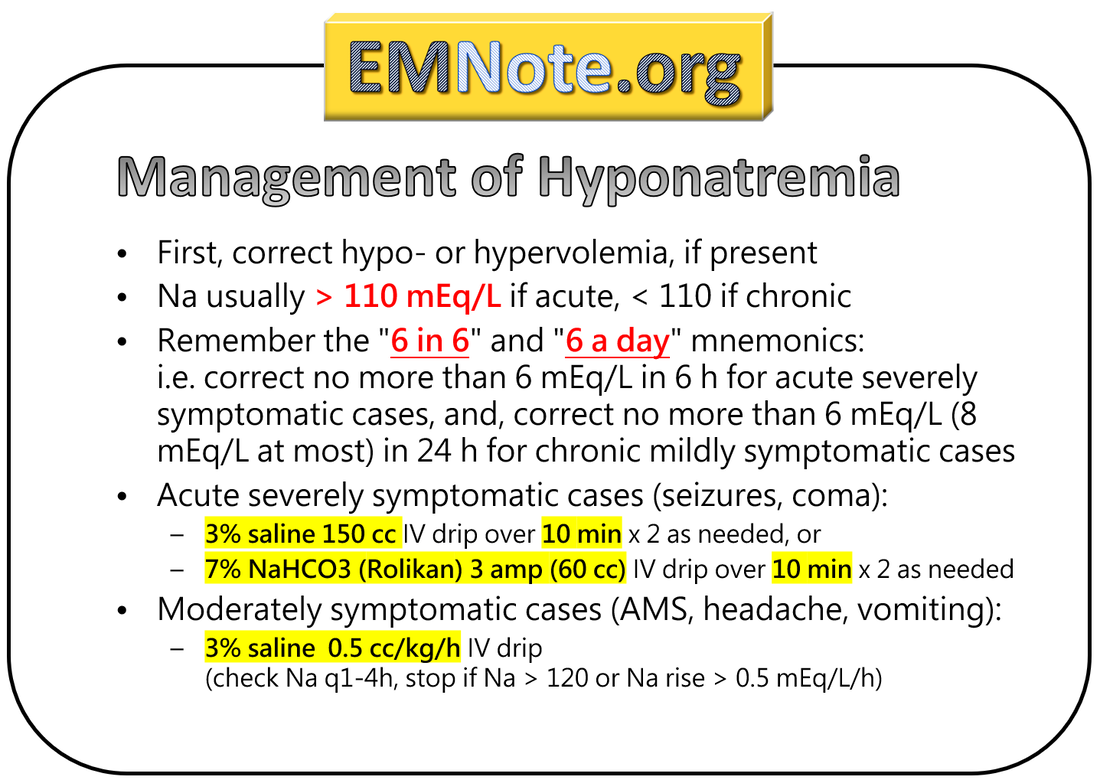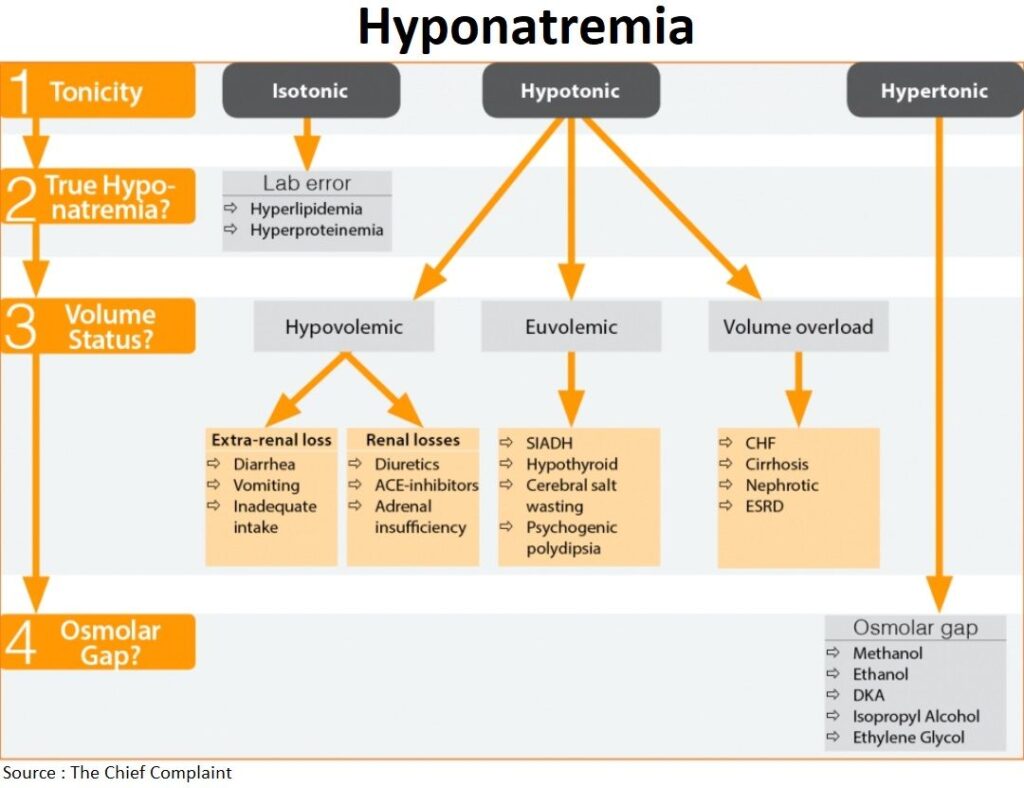Smart Info About How To Treat Hyponatremia

Your doctor may recommend iv sodium solution to slowly raise the sodium levels in your blood.
How to treat hyponatremia. You may take medications to manage the signs and symptoms of hyponatremia, such as. Treat underlying condition, if known; Degree and severity of clinical symptoms duration and magnitude of the hyponatremia patient's volume status the recommendations for treatment of.
In patients with chronic hyponatremia, fluid restriction is the mainstay of treatment, with demeclocycline therapy reserved for use in persistent cases. What are the signs and symptoms of hyponatremia? Rapid correction should be avoided to.
Where possible, discontinue use of medications that can worsen hyponatremia; Treatment of hyponatremia depends upon the degree of hyponatremia, duration of hyponatremia, severity of symptoms, and volume status.
Normal saline forms the mainstay of treatment for hypovolemic hyponatremia while 3% nacl and fluid restriction are important for euvolemic hyponatremia. Serious hyponatremia can cause seizures, coma and even.
If the sodium concentration has fallen by more than 10 mmol/l from normal, may consider iv bolus 150 ml 3% hypertonic over 20 min; It can be caused by a variety of factors. Hypovolemic hyponatremia is treated with normal saline infusions.
It also briefly covers the initial management of hyponatraemia in secondary care. Hyponatremia is the most common electrolyte disorder in clinical medicine; Symptoms of hyponatremia can include nausea and vomiting, loss of energy and confusion.
Management of hyponatremia starts by establishing whether severe symptoms are present. Identification of studies we performed a systematic review on the management of hyponatremia through searches of ovid medline (1946 through june 2011), embase (1947 through july 2011) and the cochrane database. (see also water and sodium balance.) etiology of hyponatremia hyponatremia reflects an excess of total body water (tbw) relative to total body sodium content.
Hyponatremia is defined as a sodium level of less than 135 meq/l. Asymptomatic or mildly symptomatic acute hyponatremia 2,4. Treating euvolemic hyponatremia includes restricting free water consumption or using salt tablets or intravenous vaptans.
Hyponatremia causes neurologic symptoms ranging from confusion to seizures to coma. ● in patients with acute hyponatremia, we monitor the patient for symptoms and remeasure the serum sodium concentration. For example, you might see your primary care doctor or a doctor who specializes in kidney health ( nephrologist ), elder care (geriatrician), hormonal health (endocrinologist), or other doctors who.
Management last revised in november 2020 scenario: Sodium is an important mineral that helps balance the amount of fluid (water) in your body. The following three factors guide treatment:
